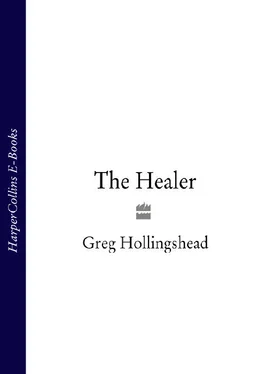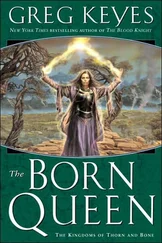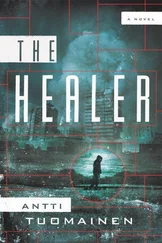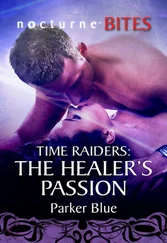“You’re right,” Wakelin said, fanning at blackflies. “It’s a wonderful view. Is that really Grant down there?”
The river was a flung sash. Above the town, corrugations of rapids. He walked over to a clothesline. In the spirit of a prospective car buyer kicking a tire, he tested the spring of it. Looked back around at the house.
Last summer one of the realtors Wakelin consulted had spoken to him of the paramount importance of a straight ridgepole. He was a squat guy with frizzy no-colour hair and the breath of a cat. Your first line of defence, he kept saying with fierce, tooth-sucking emotion.
“Roof seems okay,” Wakelin now observed. “What are they asking?”
She told him.
Wakelin was astounded but too cunning to let on. “How much land?” he asked calmly.
“Two acres.”
Now he could hardly contain himself. “Not bad,” he murmured, practically stroking his jaw. “Not bad at all.” He ventured a glance at her then, and she was looking at him as if he were insane. “Of course it needs a little work,” he added quickly. “A new door, for one thing. From this angle that one looks kind of warped. And windows. Can you see a single intact pane? I can’t.”
She had started for the house.
“Could we look inside?” Wakelin called.
It was a dreary warren of scat-littered open-lathed cubicles remarkably unventilated considering the amount of window glass scattered across the floors. Wakelin kept crunching over to the light and gazing off into the distance. Anyhow, it was a great view. He was a menace to his own livelihood, wasn’t he, to be so impressionable? When even a place like this could have him forgetting he was not here to buy property.
“Those are hydro lines, right?” he said, pointing out a window at wires with insulation frayed and rotting. “Or would that be phone?”
“There’s no phone.”
“And heat?”
“Oil.”
She was looking at him, waiting, he imagined, for more questions. “They deliver up here, do they?” he said.
“It needs a proper well.” “For oil?” She waited.
“Oh, right, of course,” he said, nodding. “That might be fun. Could I dowse?”
She turned away.
When they were out in the fresh air again, same blackflies—must have waited—he asked, “So is there in fact a front door?” but he was already sighing. “Look,” he said. “I’m afraid upstairs I heard a car go by. Two cars. I appreciate the highway’s at the bottom of that channel so you don’t actually see it, and I guess windowpanes would make the place more soundproof, but, I mean”—vaguely he looked to where he imagined the highway—“it’s right there.” When he turned back, she was walking away.
“Hey, where are you going?”
The second property was fifty miles north and east. Wakelin looked again to the side of her face. Where was she taking him? To the land where all foolishness is exploded? He tried to get her to talk, not about healing necessarily, about anything, small talk, but the driver’s prerogative being silence he soon gave up, though grateful. He was not enjoying the sound of himself with her. A tenor of wheedling. Persona of a ditz. A pale little voice from a box-inside-a-box of ignorance feigned and ignorance real. Where was the affable lettered fellow with the easy laugh and the endearing stammer who should have had the story by now? A story. Some story. Was it her country authenticity throwing him or only something that passed for it, a dark reflector of his own devious passing, and here at the wheel of this truck was a natural power demon, an old-world witch, the sort of woman that people can’t stop themselves submitting their bodies to?
After forty minutes down a rolling corridor of black spruce, the asphalt acceded to washboard. A government sign said Highway Improvement Project and Caution: Unsurfaced Road. Ten minutes later a propped sign with a red-rag flag above it said Slow for Highway Workers, but there was no equipment and no road crew, just the hanging dust of vanished speedsters. Asphalt again and soon after, Coppice, a truck-stop hamlet on a black river in a valley more a shallow dip in the rock than a valley. Caroline Troyer pulled in for gas at a Shell station where the man on the pumps was a study in black faded to the landscape. Mafic attire. Black shirt, black jeans, black boots, all like the rock here weathered to grey. Receding black hair greying, combed straight back. A lean hollow-chested man with the complexion of late Auden and the non-rotational spine of an old farmer. The faded black shirt he wore open at the neck, a square of peach-coloured plastic mesh at his throat, and when he leaned down to Caroline’s window his fingers fiddled up under the mesh and his voice came out electronic and raw.
“How are you folks t’day.”
“Orest Pereki,” she said.
Now he looked at her more closely.
“Caroline Troyer,” she said.
“So it is,” the voice said, the fingers up under the mesh. “How’s your dad?”
The service station had a restaurant with peach curtains punched out in that same plastic mesh. Wakelin said he needed to stop for lunch, he was ravenous. He knew that if he didn’t get her talking soon he had no story. It would be two wasted days. “On me,” he said. “Please.”
For a mile or so the highway had run parallel to a hydro power line, and now in three columns the giant pylons stalked the horizon like skeletons of Martian war machines. When Wakelin and Caroline were seated inside by the window, she parted the curtain of mesh and indicated the man dressed like rock. “Orest used to be cut sprayman for Hydro,” she said.
Wakelin considered this, and then he said, “Defoliant? Orest should sue.”
She was still looking out the window. “He’d need money to sue.”
“Not necessarily,” but that sounded fairly unlikely. Wakelin considered adding something like, Too late for a healing, I guess, a case like that. Or, Kind of raises the larger issue of why people get sick, doesn’t it?
But he didn’t. Instead he ordered the club on brown, toasted, with fries. Caroline Troyer, the egg salad on white. They both chose medium Cokes. A point of connection, Wakelin felt. Over lunch he got down to work. He started by asking her if she liked living in the country.
“I don’t.”
“Why not?”
“I live in town.”
“Right. How’s town?”
She shrugged her shoulders. They really were very broad. A fine head on them, too. “I never lived anyplace else.”
Wakelin shifted in his seat. “Tell me. What do you think to yourself when somebody shows up from the city looking for a piece of country property?”
“I don’t think anything. It’s always him takes them out.”
“Hey. I’m honoured.”
Gravely she studied his eyes, perhaps to discover there a finer intelligence than could be inferred from his words.
Wakelin persisted. “But why me?”
“He told you to come in when he wouldn’t be there.”
“Because he didn’t like my face.”
She did not deny this, instead said, “It would be him we saw Bachelor Crooked Hand talking to.”
“He set this up?”
“No. But Bachelor would tell him what he saw.”
“Why? Your father wants you or he doesn’t want you to take people out?”
“He doesn’t know if he wants me to or not.”
“But you don’t. Want to. Normally.”
“My parents, they think I should have a career.”
“And you don’t agree, particularly? But it doesn’t have to be this one, does it?”
She didn’t say anything.
“Doesn’t a person have to lie to sell houses?” Wakelin asked next.
“You don’t have to lie. You show them a bad one and then you show them a good one. That’s what he does.”
Читать дальше











